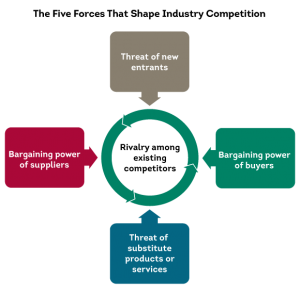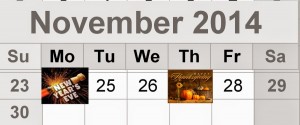September 12, 2016

Have you thought about your 5 year plan?
What is your 5 year plan?
The “What is your 3 year plan?” and “What is your 5 year plan?” are both very common interview questions. I admit I ask the question on a regular basis when I am conducting interviews and there are a couple of things I am looking for in the answers. There are definitely answers that will move you along and answers that will result in the candidate being declined. Recently, I was colleague-ing with a good friend who is interviewing for a senior position with THE premier search company and one of our practice questions was “What is your 5 year plan?”
This friend is one of the smartest people I know. To put this into perspective, she has a PhD, and a MBA, studied music all her life and leads a disciplined life. Another words, she isn’t just smart, she isn’t just horned rim glasses smart, she is intellectual horsepower Asian smart. She showed up with a 3 ring binder of research, interview questions, and examples. I love working with folks with this much initiative. Yeah, I was more than flattered to be asked to work with her.
Before I launch into her answer to the “What is your 5-year plan?”, let me try and explain what I am looking for when I ask this question based on feedback from 100’s of hiring managers feedback.
When I ask “What is your 5 year plan?”, what I am looking for is “purpose” and “direction”. Specifically, I will weed out candidates who do NOT have a plan. A lot of readers will say that culling candidates because they don’t have an answer is harsh and typical of an arrogant and self-righteous recruiter. Guilty as charged, just hear me out and listen to my logic. Comments welcome below.
Requisite dating example:
You are on one of the first couple of dates with Mr. Potentially Right, and we ask all the normal questions:
First date questions:
- What is your sign?
- What foods do you like?
- Favorite movie?
- Do you have any brothers or sisters?
- Blah blah blah. Just checking for chemistry here, not going to ask anything potentially argumentative just yet.
Things go well on the first date and on the second date, we up the ante with Mr. Potentially Right.
Second date questions:
- “Do you want to have kids?”
- “How many kids?”
- “What presidential candidates are you going to vote for?”
- “What are your career goals?” AKA “What is your 5-year plan?”
If the answer to question number 3 is:
“Well, I am finishing up my degree in Information Systems after which, I hope to study for the GMAT and then get my MBA at Michigan State. My goal would be to work for Acme Publishing.com or one of the one of the big search companies. I have been working during the summers saving for grad school and I will need to take out a small loan, but I can’t wait to study advanced business topics and combine them with technology.”
Wow! I am a straight dude and I want a third date with this guy. He has his shit together and could be a great life partner.
Bad answer
If I hear:
“Career goals? Hmmm, hadn’t really thought about a career. Just trying to get through school.”
Or;
“Well, I am in my third year of school, but I am not feeling it. I don’t feel right about corporate America, the presidential candidates and where the country is going. I am thinking about dropping out.”
Uhhhh, yeah, you were Mr. Potentially Right, but now you are just Mr. Loser Wrong. Dropping out after racking up 3 years of college debt with no plans? WTF Dude? I don’t want any part of that. If you said you were on the verge of inventing a paint that goes on dry or had a mobile app that was getting 1000’s of downloads a day, I could dig it. Sadly, you don’t even sound like you are dreaming at this point. Show’s over, no +1 here.
Back at our interview
The hiring manager just asked our candidate, “What is your 5 year plan?”
Candidate: “Wow, I hadn’t really thought about a 5 year plan. I don’t have the experience to know what is out there. Having just graduated from college, my goal for the past 4 years was to just get through school. Right now, I am just trying to find a job”
Mr. Potential New Hire is now Mr. Declined.
Most of us want to date, hang out with, and hire folks that have a sense of purpose and direction. If we are going to pay someone, we definitely want to know they have some ambition. We may not know what is out there, but that shouldn’t be an excuse for not having a plan. What I am looking for is someone with a purpose. Said with the right back up, I can be happy with all of the below:
- “I want to be CEO of the company”
- “5 year plan? I want your job”
- “This is easy, I want to make $ 300K a year”
All of the above can be perfectly good answers as long as we back them up with a path to get there. Just saying I want to make $ 300K isn’t enough.
The “Why” lends credibility
But, if I hear:
“My father is in sales and makes a comfortable living. I want to do the same. He has taught me that the sales people have the ability to control their salary. Most positions have a comp band. Sales positions provide commissions. Consequently, the more you sell, the more you make. I am not going to make 300K my first year, but in three years, my hope is to have a job where I am making 75K as a base and 75K upside in commissions.”
This candidate has thought about his goals and has a plan.
What I usually hear:
I want to be a manager, I think I am a good people person, I have leadership potential and want to have a team reporting to me”. Full Stop, end of sentence.
10% of candidates provide the following:
“I want to be a manager. I think I am a good people person, I have leadership potential and want to have a team reporting to me. In the past I was in a leadership position at my fraternity and enjoyed it.”
Our PhD / MBA friend provided a very similar answer to 10 percenter’s above. Even though she was articulate, she lacked emotion. In the end, I didn’t believe her.
What I really thought:
I asked her again, “What do you really want to do?” She provided a little longer answer thinking that her answer wasn’t detailed enough.
My response:
I like your answer. Unfortunately, I don’t feel like it is YOUR answer. The answer you provided is the answer you think I want to hear. It is the answer that you think you are supposed to give, and what you think managers want to hear. (She nodded her head in agreement) I didn’t feel any passion behind the answer, I didn’t feel any emotion. I’m not buying it.”
I asked the same question a little differently: “What do you want to do? What do you want to be known for?”
Her response: “I don’t know that I really want to be a manager. I want to be a multiplier. I am a data scientist that takes business questions and translates them into data analysis. With my findings, the department or company will make exponential improvements and I really like being behind the scenes and making that kind of impact. For the past 10 years, I have made a career out of leveraging data and improving results. Ultimately, my 5 year plan is to do this at a larger scale and build my reputation for improving performance based on data.”
BOOYAH!
This is the answer I am looking for. This is what SHE wants to do, and not what society or her parents or her manager wants her to do. She has thought about what she wants to do. She wants to scale her talents and I heard it in her voice.
The answer that will decline a candidate is an answer that shows the candidate has no direction about the future and no plans to self-improve.
A good answer doesn’t have to be about landing a management or leadership position.
Your SHOULD show that you have thought about a future, you can articulate it and you are on a path to getting there. Just saying what you want without explaining the prior progress towards the goal is just trash talkin’. She was excited about her answer because it was HER answer and it was the truth. her answer explained what SHE really wanted to do. She had a 5 year plan.
Business & Finance Articles on Business 2 Community(110)






